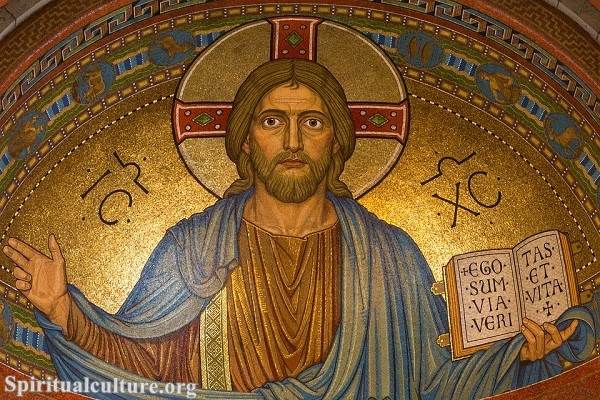In every corner of our interconnected world, a movement is stirring hearts and reshaping the landscape of Christianity. This movement — Pentecostalism — is not merely a denomination or a new flavor of Protestantism; it is a profound spiritual awakening that has transcended cultural, linguistic, and national boundaries.
As “Spiritual Culture,” we invite you to journey with us into the heart of this phenomenon. We will explore how Pentecostalism emerged, why it resonates so deeply with millions, and what it reveals about our collective spiritual longing for intimacy with the Divine. More than statistics and growth charts, this is a story about the universal human hunger for the Spirit’s touch — for miracles, for healing, for an experience of God that is alive and immediate.
In this article, we will unfold the origins of Pentecostalism, its explosive global spread, the theological and cultural forces behind it, and its lasting impact on modern Christianity. We’ll also explore how its message speaks to the challenges of today’s world and the yearning of the human soul for something beyond ordinary religion.
The Birth of Pentecostalism: A New Fire in Modern Christianity
The Azusa Street Revival: A Spark that Ignited the World
At the dawn of the 20th century, in a small mission on Azusa Street in Los Angeles, a spiritual fire began that would circle the globe. Led by William J. Seymour, a humble African American preacher, the 1906 Azusa Street Revival marked a dramatic outpouring of the Holy Spirit. Eyewitnesses reported speaking in tongues, miraculous healings, and spontaneous, ecstatic worship.
This revival was not confined to one social group. Rich and poor, black and white, men and women — all gathered together, breaking down societal barriers in an extraordinary display of unity and spiritual hunger. It was a living embodiment of the words in Acts 2:17:
“In the last days, God says, I will pour out my Spirit on all people. Your sons and daughters will prophesy, your young men will see visions, your old men will dream dreams.”
Early Spread and Global Mission
The message and the fire of Azusa Street could not be contained. Attendees carried this Pentecostal flame to Africa, Latin America, Asia, and Europe. In every context, it adapted to local cultures while keeping its central emphasis on spiritual gifts (charismata), personal conversion, and direct experiences of the Holy Spirit.
Pentecostal missionaries often operated outside traditional denominational frameworks, relying on spontaneous guidance and faith rather than structured ecclesiastical support. This adaptability made Pentecostalism uniquely equipped to spread rapidly across diverse societies.
Core Beliefs and Practices: A Direct Encounter with the Divine
Baptism in the Holy Spirit and Speaking in Tongues
At the heart of Pentecostal theology lies the belief in a “second blessing” — the baptism in the Holy Spirit — usually evidenced by speaking in tongues (glossolalia). This practice is rooted in the New Testament, especially Acts 2, where the disciples were filled with the Holy Spirit and began to speak in other languages as the Spirit enabled them.
This experience is seen not just as a historical event but as a continual, living reality available to every believer. It represents a personal, transformative encounter with God, often bringing a deep sense of empowerment and spiritual renewal.
Healing, Prophecy, and Miracles
Pentecostals also emphasize divine healing, prophecy, and other miraculous gifts. They hold fast to passages like James 5:14–15:
“Is anyone among you sick? Let them call the elders of the church to pray over them and anoint them with oil in the name of the Lord. And the prayer offered in faith will make the sick person well; the Lord will raise them up.”
Through such practices, Pentecostals affirm that God is not distant or confined to sacred texts and rituals — He is present, active, and intimately involved in human life.
A Faith That Moves: Pentecostalism’s Explosive Global Growth
Latin America: From Margins to Mainstream
Nowhere has Pentecostalism grown more dramatically than in Latin America. In countries like Brazil, Guatemala, and Chile, Pentecostal churches have moved from fringe movements to dominant spiritual forces. Their emphasis on healing, prosperity, and vibrant worship resonates deeply with populations facing poverty, social inequality, and political turmoil.
The accessible structure of Pentecostal communities — often with small home-based groups and charismatic leadership — offers a sense of belonging and immediate spiritual support.
Africa: The Spirit and the Community
In Africa, Pentecostalism has flourished as it connects powerfully with indigenous spiritual worldviews. The focus on spiritual warfare, deliverance from evil spirits, and direct divine intervention mirrors traditional African religious concerns.
African Pentecostal leaders often emphasize community empowerment and social transformation alongside spiritual renewal. Churches frequently engage in education, healthcare, and economic development, embodying the holistic nature of the gospel.
Asia: Adaptation and Growth Amid Diversity
In Asia, Pentecostalism adapts to diverse cultural and religious contexts. In South Korea, the rise of mega-churches like Yoido Full Gospel Church reflects a blending of Pentecostal fervor with Korean cultural values of community and perseverance. In India, Pentecostalism offers an alternative spiritual path amid the tapestry of Hinduism, Islam, and other faiths.
Despite persecution and resistance in some regions, Pentecostal movements continue to grow rapidly, driven by personal testimony, healing ministries, and vibrant worship.
Pentecostalism and the Modern World: Why Now?
Addressing Spiritual Hunger in a Secular Age
As modern societies grow more secular and materialistic, many individuals feel an existential void — a yearning for something beyond wealth and success. Pentecostalism’s promise of a personal, dynamic relationship with God offers an answer to this hunger.
Its experiential approach stands in contrast to more formal or doctrinal expressions of Christianity, appealing to those seeking immediate spiritual realities rather than abstract theological debates.
Empowering the Marginalized
Pentecostal churches often thrive among the poor and marginalized. Their message of hope, divine empowerment, and spiritual equality resonates deeply with those excluded from economic and social power structures.
The doctrine that the Holy Spirit can anoint anyone, regardless of education or status, offers a radical inclusivity. This is profoundly illustrated in 1 Corinthians 1:27:
“But God chose the foolish things of the world to shame the wise; God chose the weak things of the world to shame the strong.”
Challenges and Critiques: A Movement Under Examination
The Prosperity Gospel and Ethical Concerns
One of the most controversial aspects of Pentecostalism is the spread of the “prosperity gospel” — the teaching that faith will inevitably lead to financial blessing and physical health. Critics argue that this distorts biblical teaching and exploits vulnerable believers.
This raises deep questions: Does a focus on material blessings distract from the call to spiritual maturity and self-sacrifice? Can it perpetuate a transactional view of God?
Charismatic Excesses and Accountability
Some worry about unchecked charismatic practices leading to emotional manipulation, authoritarian leadership, or theological drift. The reliance on personal revelations and subjective experiences can at times eclipse scriptural grounding.
These critiques call Pentecostals to continually return to the heart of their faith: humble dependence on the Spirit, fidelity to scripture, and authentic community life.
Sacred Texts and the Spirit’s Movement
Pentecostalism finds deep inspiration in the book of Acts and the writings of Paul, where the early Christian communities were marked by bold witness, miraculous signs, and deep communal life. This return to “primitive Christianity” resonates powerfully across cultures.
As it says in Acts 4:31:
“After they prayed, the place where they were meeting was shaken. And they were all filled with the Holy Spirit and spoke the word of God boldly.”
Pentecostals believe this is not a distant memory but an invitation to live in the same Spirit-powered reality today.
Pentecostalism as a Mirror and a Doorway
Pentecostalism mirrors the soul’s deep cry for connection, meaning, and empowerment. It also acts as a doorway — inviting believers to move beyond inherited forms and structures into a raw, living faith that touches every part of life.
For those exhausted by empty religion, it offers fire. For those longing for healing, it offers the touch of God. For those who feel invisible, it offers divine affirmation and dignity.
Reflect and Reimagine
The rise of Pentecostalism in global Protestantism is more than a statistic or sociological trend; it is a profound spiritual current that reveals humanity’s universal longing for the living God. Whether one embraces its theology fully or watches from a distance, we are all invited to consider what it means to truly encounter the Divine — not just in doctrine but in daily, vibrant, Spirit-filled living.
As you reflect on this movement, ask yourself: Where do I see the Spirit moving today? How might I open my life to deeper, more immediate experiences of God’s presence?
In the whirlwind of modern life, Pentecostalism calls us back to the heart: to listen, to trust, and to expect that heaven might break in at any moment. May this journey inspire you to seek a faith that is alive, transformative, and beautifully unpredictable — a faith that makes you dance, weep, and rejoice in the sacred touch of the Spirit.




